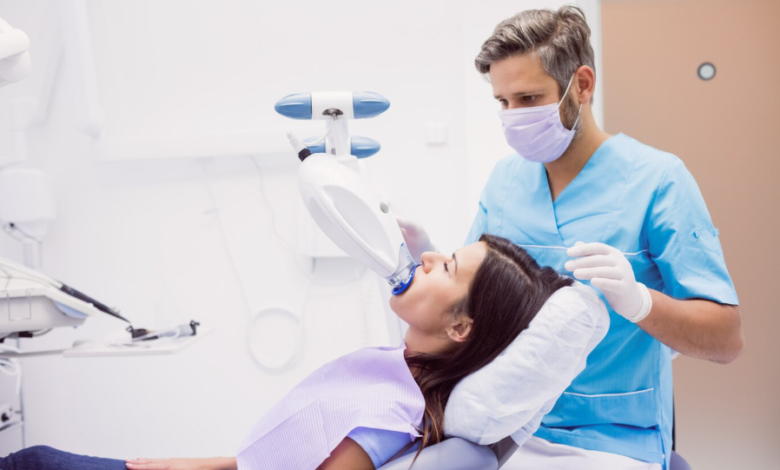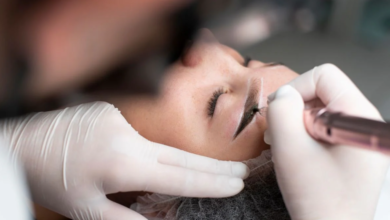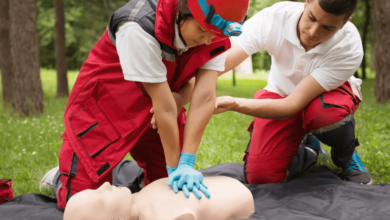Aurora, IL Emergency Dentist: Your Guide to Immediate Dental Relief

Recognizing a Dental Emergency in Aurora
It’s super important to know when a dental issue needs immediate attention. Not everything can wait until your next regular check-up. This guide will help you figure out when you need to rush to an emergency dentist in Aurora IL. Knowing the difference can save you a lot of pain and maybe even a tooth!
When to Seek Emergency Dental Care
So, how do you know if it’s a real emergency? Well, it’s more than just a little twinge. Here are some situations where you should definitely seek immediate dental care:
- If you’re in severe pain that doesn’t go away with over-the-counter stuff, that’s a big red flag. Don’t tough it out; get it checked.
- Any uncontrolled bleeding in your mouth needs immediate attention. Don’t wait to see if it stops on its own.
- If you’ve got a bad infection with swelling, especially if it’s affecting your breathing or swallowing, head to the ER or emergency dentist right away.
Severe Pain and Uncontrolled Bleeding
Let’s break down those two biggies a bit more. Severe pain is subjective, but if it’s keeping you from sleeping, eating, or functioning normally, it’s severe. And uncontrolled bleeding means it’s not stopping after applying pressure for a reasonable amount of time (like 15-20 minutes).
Signs You Need Immediate Attention
Here’s a quick checklist to help you decide:
- Knocked-out tooth: Time is of the essence to try and save it.
- Abscess: A painful, pus-filled pocket that can indicate a serious infection.
- Broken or fractured tooth with significant pain: Especially if it’s sharp and cutting your mouth.
- Lost filling or crown with pain: Exposing sensitive nerves can be excruciating.
- Severe gum swelling: Could be a sign of a serious infection that needs quick treatment.
Immediate Steps for Dental Emergencies
When you’re hit with a dental emergency in Aurora, it’s easy to feel overwhelmed. But taking quick, smart actions can really make a difference before you get to the dentist. This section is all about those immediate steps. Let’s dive in.
Stay Calm and Assess the Situation
First things first: try to stay calm. I know, easier said than done when your mouth is throbbing, but panic won’t help. Take a deep breath and try to figure out what’s going on. Is it a knocked-out tooth? A bad toothache? Knowing what you’re dealing with helps you explain it to the dentist later. Here’s what I usually do:
- Take a few deep breaths to center yourself. Seriously, it helps.
- Carefully check your mouth for any obvious damage, like cuts, swelling, or missing pieces of teeth.
- Try to remember exactly when the problem started and what you were doing. Details matter!
Examine Your Mouth for Damage
Okay, now for a closer look. Grab a mirror and get a good view of your mouth. Look for anything out of the ordinary. Is there a lot of blood? Is something obviously broken or out of place? The more you can see, the better you can describe it to the emergency dentist Aurora IL. Consider these points:
- Check for any loose teeth besides the one that’s bothering you.
- Look at your gums. Are they swollen or bleeding more than usual?
- See if you can spot any foreign objects stuck in your mouth.
Keep Track of Your Symptoms
While you’re waiting to see the dentist, keep a mental note (or write it down) of your symptoms. When did the pain start? What makes it worse? What makes it better? Any swelling, bleeding, or sensitivity to hot or cold? This info is gold for the dentist. Here’s what I try to track:
- The exact location of the pain. Is it one tooth or a general area?
- How intense the pain is on a scale of 1 to 10.
- If anything triggers the pain, like eating or drinking something specific.
Managing Pain Before Seeing an Emergency Dentist Aurora IL
When you’re hit with a sudden dental issue, finding an emergency dentist Aurora IL is the priority, but what do you do in the meantime? Managing the pain and discomfort is super important while you wait for your appointment. Here’s how to handle it.
Over-the-Counter Pain Relievers
If you’re dealing with dental pain, over-the-counter meds can really help. I’ve found these to be useful:
- Ibuprofen (Advil, Motrin): This is great for reducing inflammation, which is often a big part of dental pain. Just follow the dosage on the label.
- Acetaminophen (Tylenol): This is another good option, especially if you can’t take ibuprofen. Again, stick to the recommended dose.
- Topical Anesthetics: Things like Orajel can numb the area directly. They’re not a long-term solution, but they can provide quick, temporary relief.
Applying a Cold Compress
A cold compress can work wonders for dental pain. Here’s how I usually do it:
- Grab an ice pack or a bag of frozen peas: Wrap it in a towel to protect your skin.
- Apply it to the outside of your cheek: Hold it there for about 15-20 minutes at a time.
- Repeat every few hours: This helps reduce swelling and numb the area, giving you some much-needed relief.
Saltwater Rinse for Relief
A saltwater rinse is a simple but effective way to ease dental pain. It’s what my grandma always told me to do! Here’s the method:
- Mix a teaspoon of salt in a cup of warm water: Make sure the salt dissolves completely.
- Gently swish the solution in your mouth: Focus on the affected area.
- Spit it out: Don’t swallow it. Repeat this a few times a day to keep the area clean and reduce inflammation.
Maintaining Oral Hygiene During a Crisis
Even when you’re dealing with a dental emergency, keeping your mouth clean is super important. It might seem like the last thing on your mind, but good oral hygiene can actually help prevent things from getting worse and support healing. Finding an emergency dentist Aurora IL is important, but so is keeping your mouth clean in the meantime.
Gentle Brushing Techniques
When you brush, be extra gentle around the affected area. You don’t want to irritate it more. Here’s what I recommend:
- Use a soft-bristled toothbrush. This will be kinder to your gums and any sensitive spots.
- Brush very lightly. Apply minimal pressure to avoid causing pain or further damage.
- Focus on cleaning the areas around the problem spot. You still need to remove plaque and food particles from the rest of your mouth.
Careful Flossing for Food Particles
Flossing can be tricky when you’re already dealing with a dental issue, but it’s still important to remove any trapped food. Here’s how to do it carefully:
- Be extra cautious around the sensitive area. Avoid snapping the floss or forcing it between teeth.
- Use a floss pick if regular floss is too difficult to manage. These can give you more control.
- Rinse your mouth thoroughly after flossing. This helps remove any dislodged particles and keeps the area clean.
Specific Actions for Common Dental Emergencies
When you’re facing a dental emergency, knowing exactly what to do can seriously impact the outcome. It’s not just about pain management; it’s about potentially saving a tooth or preventing further complications. Let’s break down some specific actions you can take for common dental emergencies in Aurora, IL.
What to Do for a Knocked-Out Tooth
Losing a tooth can be scary, but quick action is key. Here’s what you should do:
- Handle with Care: Pick up the tooth by the crown (the part you see in your mouth), not the root. Touching the root can damage it.
- Rinse Gently: If the tooth is dirty, gently rinse it with water. Don’t scrub it or use soap.
- Replant if Possible: Try to put the tooth back into its socket. Gently push it in with your fingers or by biting down softly on a clean cloth. If it doesn’t go in easily, don’t force it.
- Keep it Moist: If you can’t replant the tooth, store it in milk. Milk helps keep the tooth alive. You can also use saline solution or even your own saliva.
- See a Dentist ASAP: Time is of the essence. The sooner you get to an emergency dentist, the better the chances of saving the tooth.
Addressing a Chipped or Broken Tooth
A chipped or broken tooth might not seem like a huge deal, but it can lead to pain and infection if left untreated. Here’s how to handle it:
- Rinse Your Mouth: Use warm water to clean the area and remove any debris.
- Save Any Pieces: If you can find any pieces of the broken tooth, save them. Your dentist might be able to reattach them.
- Cold Compress: Apply a cold compress to the outside of your cheek to reduce swelling and ease pain.
- Pain Relief: Over-the-counter pain relievers can help manage any discomfort.
- Dental Visit: Schedule an appointment with your dentist as soon as possible. They can assess the damage and determine the best course of action.
Handling a Severe Toothache
A severe toothache can be excruciating and often indicates a serious problem. Here’s what you can do for temporary relief:
- Saltwater Rinse: Rinse your mouth with warm salt water. This can help clean the area and reduce inflammation.
- Floss Gently: Sometimes, a toothache is caused by food stuck between your teeth. Gently floss around the affected tooth to remove any debris.
- Pain Medication: Take an over-the-counter pain reliever like ibuprofen or acetaminophen.
- Avoid Irritants: Stay away from very hot, cold, or sweet foods and drinks, as these can worsen the pain.
- See a Dentist: A severe toothache usually means there’s an underlying issue, like an infection or cavity. It’s important to see a dentist to get it properly treated.
Preparing for Your Emergency Dentist Aurora IL Visit
Okay, so you’ve got a dental emergency and you’re about to head to the emergency dentist Aurora IL. What should you do to get ready? It’s not just about showing up; a little prep can make the whole process smoother for both you and the dentist. Here’s what I usually try to do before rushing out the door:
Gathering Relevant Information
First things first, try to remember exactly what happened. The more details you can give the dentist, the better. I usually try to remember these things:
- Describe the Incident: What were you doing when the problem started? Did you fall, bite down on something hard, or just wake up with pain?
- Note the Timeline: When did the pain start? Has it been constant, or does it come and go? How long has it been bleeding (if applicable)?
- List Medications: Make a mental (or actual) note of any medications you’re currently taking. This includes prescriptions, over-the-counter drugs, and even supplements. It can affect treatment options.
Bringing Dental Records
If you have them, bring your dental records! I know, it sounds like a pain, but it can really help. If you’ve recently moved or seen a new dentist, any previous records can give the emergency dentist a better understanding of your dental history. Things like:
- Past Treatments: Knowing about previous fillings, root canals, or extractions can be super helpful.
- X-Rays: Recent X-rays can show underlying issues that aren’t visible to the naked eye.
- Allergies: Make sure any allergies to medications or materials are clearly noted.
Communicating Your Symptoms Clearly
When you get to the dentist, be as clear and specific as possible when describing your symptoms. Don’t downplay anything, even if it seems minor. I try to remember to tell them:
- Describe the Pain: Is it sharp, throbbing, or dull? Where exactly does it hurt?
- Mention Sensitivity: Are your teeth sensitive to hot, cold, or pressure?
- Report Any Other Symptoms: Have you noticed any swelling, bleeding, or changes in your bite?
Finding an Emergency Dentist in Aurora IL
When a dental crisis hits, knowing where to turn is super important. Finding an emergency dentist aurora il doesn’t have to be a stressful experience. Let’s explore how to locate immediate dental care in Aurora, IL.
Locating a Nearby Emergency Dental Clinic
Finding a clinic fast is key. Here’s how:
- Online Search: Use search engines with terms like “emergency dentist near me” or “urgent dental care Aurora IL.” Make sure you check reviews!
- Local Listings: Check local directories or community boards for dental clinics offering emergency services. Sometimes, old-school methods work best.
- Hospital Referrals: Contact local hospitals; they often have dental departments or can refer you to an emergency dentist aurora il.
Scheduling an Immediate Appointment
Time is of the essence. Here’s how to get seen quickly:
- Call Directly: Call the dentist in aurora il clinic immediately and explain your situation. Be clear about your symptoms and pain level.
- Online Booking: Some clinics offer online booking for emergency appointments. This can be a faster option than waiting on the phone.
- Be Flexible: Be prepared to adjust your schedule to fit the dentist’s availability. Sometimes, you have to work around their schedule.
Understanding Emergency Dental Services
Knowing what to expect can ease your anxiety:
- Pain Relief: Emergency dentists focus on alleviating pain first and foremost. They might use local anesthetics or prescribe pain medication.
- Immediate Repairs: They address urgent issues like broken teeth, lost fillings, or infections. They can also help with dental implants aurora il that have been damaged.
- Temporary Solutions: In some cases, they might provide temporary fixes until you can see your regular dentist for a permanent solution. This could include temporary crowns or dentures aurora il fixes. They can also advise on options like invisalign aurora il after the emergency is resolved.
Wrapping Things Up
So, when a dental emergency pops up, it can feel pretty scary. But honestly, knowing what to do can make a big difference. Just stay calm, figure out what’s going on, and then get in touch with an emergency dentist in Aurora right away. While you wait, try to keep the pain down with some simple stuff like cold packs or pain relievers. And don’t forget to keep your mouth as clean as you can. Doing these things can really help until you get to the dentist. Your teeth are important, so getting help fast is always a good idea.




